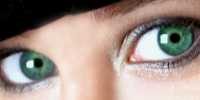
12 Jun Beyond Eye Exams: Essential Habits to Maintain Healthy Eyes
Maintaining sound eye health requires knowledge of common eye disorders. Hyperopia (farsightedness) and myopia (nearsightedness) affect our ability to see close things. Another common problem is astigmatism, which results in blurry vision because of unevenly shaped corneas. The age-related disorder, presbyopia, affects one’s capacity to focus on near objects. Older persons frequently get cataracts, which cloud the eye’s lens, while glaucoma causes elevated eye pressure that may cause vision loss. For early identification and treatment, as well as to maintain overall eye health and vision, routine eye exams are crucial.
Regular Eye Check-Ups
Regular eye check-ups are among the most critical steps in maintaining optimal vision. These visits help detect potential eye problems early and ensure your eyes are healthy. Consulting with eye doctors in Newtown, PA, can provide personalized care and recommendations for your vision needs.
Eye check-ups often include tests measuring visual acuity, depth perception, eye alignment, and movement. These tests are designed to detect abnormalities early, such as glaucoma, cataracts, and macular degeneration. Catching these conditions in their initial stages can be crucial for effective treatment and preventing long-term damage. For instance, detecting glaucoma early can allow for treatments that reduce intraocular pressure and prevent further optic nerve damage.
Critical Nutrients for Eye Health
 Eye health is significantly influenced by nutrition, with a diet rich in vitamins and minerals preventing eye diseases and improving vision. Consuming antioxidant-rich foods like leafy green vegetables, omega-3 fatty fish, and oranges is beneficial. Nutrients like lutein, zeaxanthin, and vitamin C are particularly beneficial for eye health. Lutein and zeaxanthin filter harmful blue light, while omega-3 fatty acids support retinal health and prevent dry eyes. Vitamin C in citrus fruits and berries contributes to eye blood vessel health and reduces cataract risk. A high-nutrient diet can significantly reduce the risk of age-related macular degeneration and glaucoma.
Eye health is significantly influenced by nutrition, with a diet rich in vitamins and minerals preventing eye diseases and improving vision. Consuming antioxidant-rich foods like leafy green vegetables, omega-3 fatty fish, and oranges is beneficial. Nutrients like lutein, zeaxanthin, and vitamin C are particularly beneficial for eye health. Lutein and zeaxanthin filter harmful blue light, while omega-3 fatty acids support retinal health and prevent dry eyes. Vitamin C in citrus fruits and berries contributes to eye blood vessel health and reduces cataract risk. A high-nutrient diet can significantly reduce the risk of age-related macular degeneration and glaucoma.
Daily Habits for Eye Protection
Daily ocular protection is essential to preserving the health of your vision in the long run. Start by protecting your eyes from damaging sunshine by donning sunglasses that block UV radiation. Follow the 20-20-20 rule to reduce eye strain from screens: every 20 minutes, look at anything 20 feet away for 20 seconds. To maintain eye health, keep your diet balanced with zinc, vitamins C and E, and omega-3 fatty acids. When reading or working, make sure you have adequate lighting and refrain from smoking, which raises your risk of eye problems. Frequent ocular examinations are necessary for the early identification and treatment of such problems.
Preventive Measures to Preserve Vision
Maintaining a healthy diet, controlling chronic illnesses like diabetes, and exercising regularly are all important for long-term vision maintenance. The American Academy of Ophthalmology provides tips on eye health, including protective eyewear during risky activities. Diabetes and hypertension can damage blood vessels, leading to diabetic retinopathy and hypertensive retinopathy. Stress management is crucial, and relaxation techniques like yoga and meditation can improve eye health and reduce stress-induced conditions.
The information on MedicalResearch.com is provided for educational purposes only, and is in no way intended to diagnose, cure, or treat any medical or other condition.
Some links are sponsored. Products are not endorsed.
Always seek the advice of your physician or other qualified health and ask your doctor any questions you may have regarding a medical condition. In addition to all other limitations and disclaimers in this agreement, service provider and its third party providers disclaim any liability or loss in connection with the content provided on this website.
Last Updated on March 25, 2025 by Marie Benz MD FAAD
